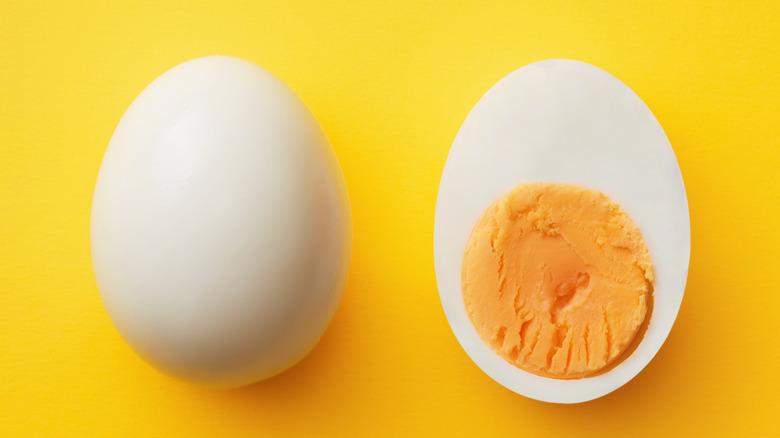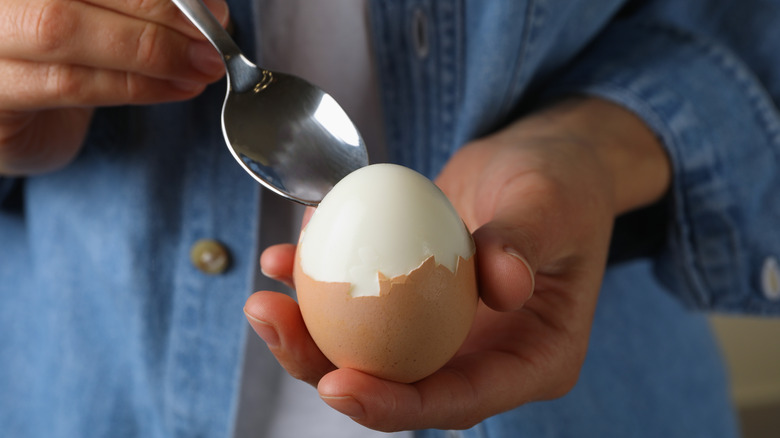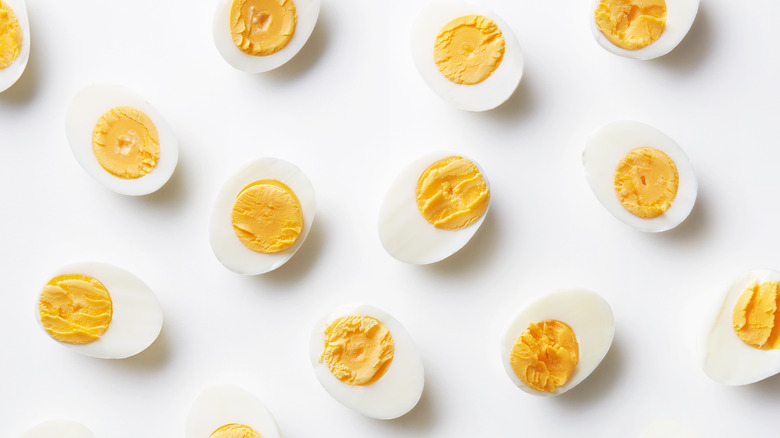Why Some Doctors Warn Against The Boiled Egg Diet
It's hard to believe that, with all we know about nutrition and biology, there are still extreme diets being touted for rapid weight loss — and people who believe in them. Yet, here we are, with new fad diets popping up on the daily.
The boiled egg diet is another regimen designed to promote incredibly fast weight loss. In recent years, we've had the apple cider vinegar diet; the five-bite diet; and the werewolf diet, a 24-hour fast on the days of the new and full moons.
Fad diets, in general, are not good for your health, nor are they sustainable. They typically leave out essential nutrients — or even entire food groups — and any weight that's lost is bound to come back. They also label foods as wholly good or bad and always claim to give super fast results (via Healthline). The boiled egg diet is one of the latest.
How the boiled egg diet works
To its credit, the boiled egg diet includes other foods besides just boiled eggs. However, it does promote eating several eggs every day.
"The boiled egg diet is a low calorie, low carbohydrate diet that will promote weight loss due to a calorie deficit," says nutrition consultant Erin Palinski-Wade (via Newsweek). "The general outline of the meal plan is to eat two eggs with fruit at breakfast and then eggs or another lean protein with non-starchy vegetables at the other two meals during the day."
According to Women's Health, the diet advises restricting foods with a lot of carbs, including potatoes, bread, processed foods, and sugar. At the same time, it suggests eating skinless chicken, fish, and pork for protein; a limited selection of fruits, including grapefruit, lemon, and lime; and non-starchy vegetables, like kale, spinach, and onions. It does not allow for snacks during the day or any desserts.
Consequently, it doesn't provide a nutritionally balanced diet. Since calories are severely restricted, the weight loss that occurs isn't sustainable. The weight will return once the 14-day diet plan is over and you return to normal eating.
What happens when you eat so many eggs?
Eggs contain saturated fat, so they have the potential to raise your levels of low-density lipoprotein (LDL) cholesterol (via WebMD). While one to two eggs per day may be safe, eating several eggs daily — like the boiled egg diet dictates — is too much.
LDL is known as the "bad" cholesterol because it increases the chance of heart attack or stroke. In addition, since eggs have zero fiber and the boiled egg diet restricts many healthy carbs that contain fiber, you may run the risk of constipation on this diet (via Everyday Health).
Also, the diet's restrictive nature combined with the low-calorie consumption — not to mention the hyper-focus on good and bad foods — can trigger those with disordered eating (via Healthline). Also, if you live with a chronic health condition, the strict plan may not be optimal for managing your health.
In the end, fad diets don't work, and a balanced eating plan filled with nutritiously dense foods is the key to good health.


